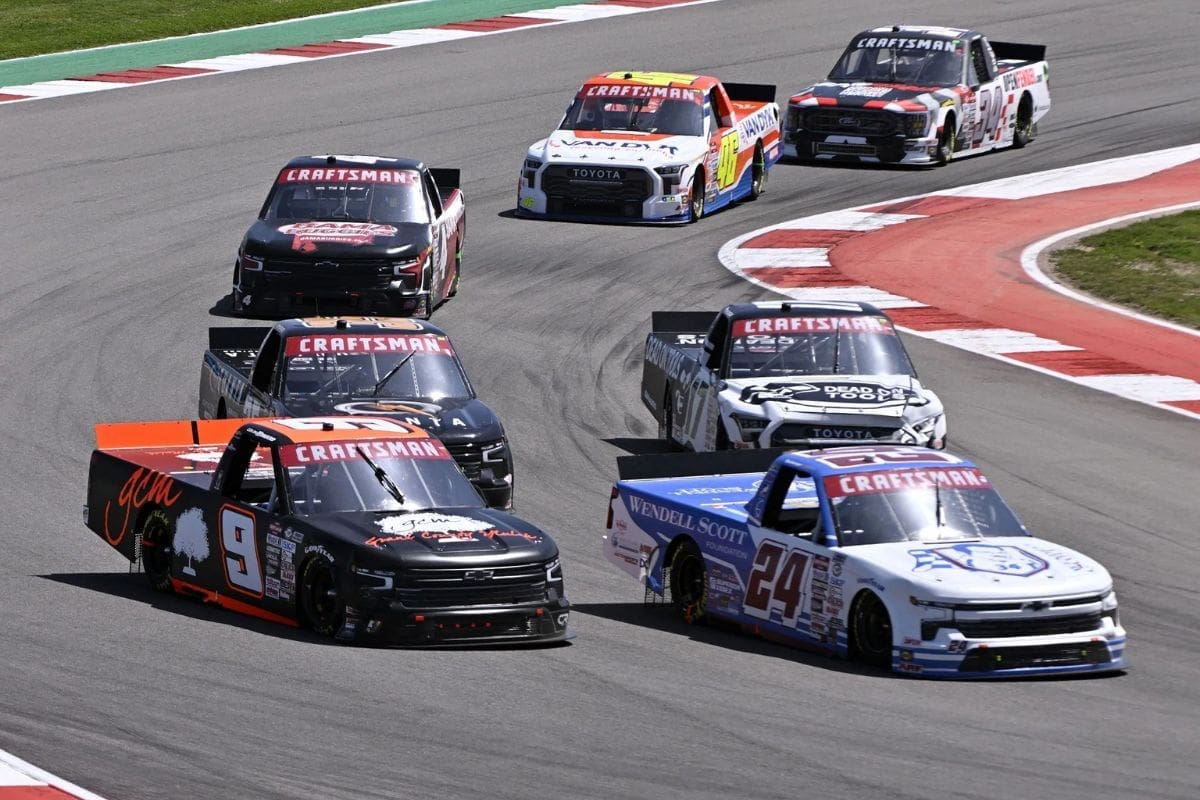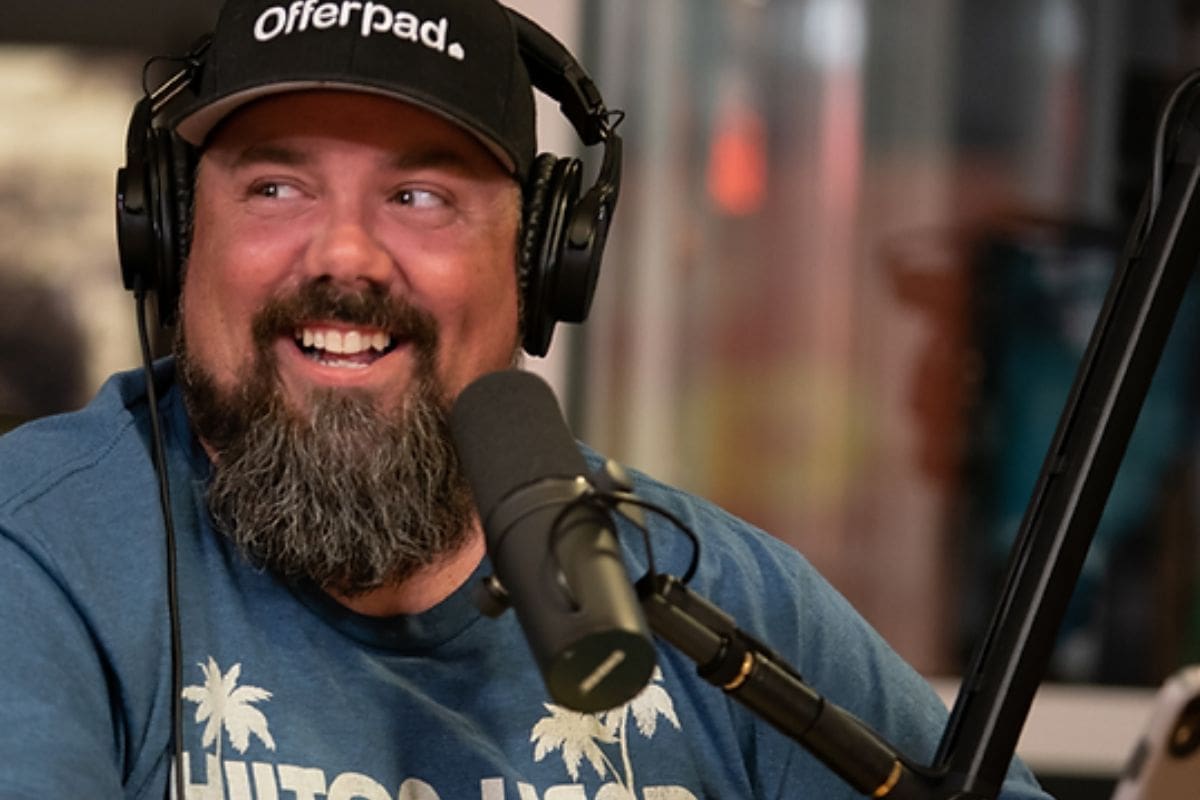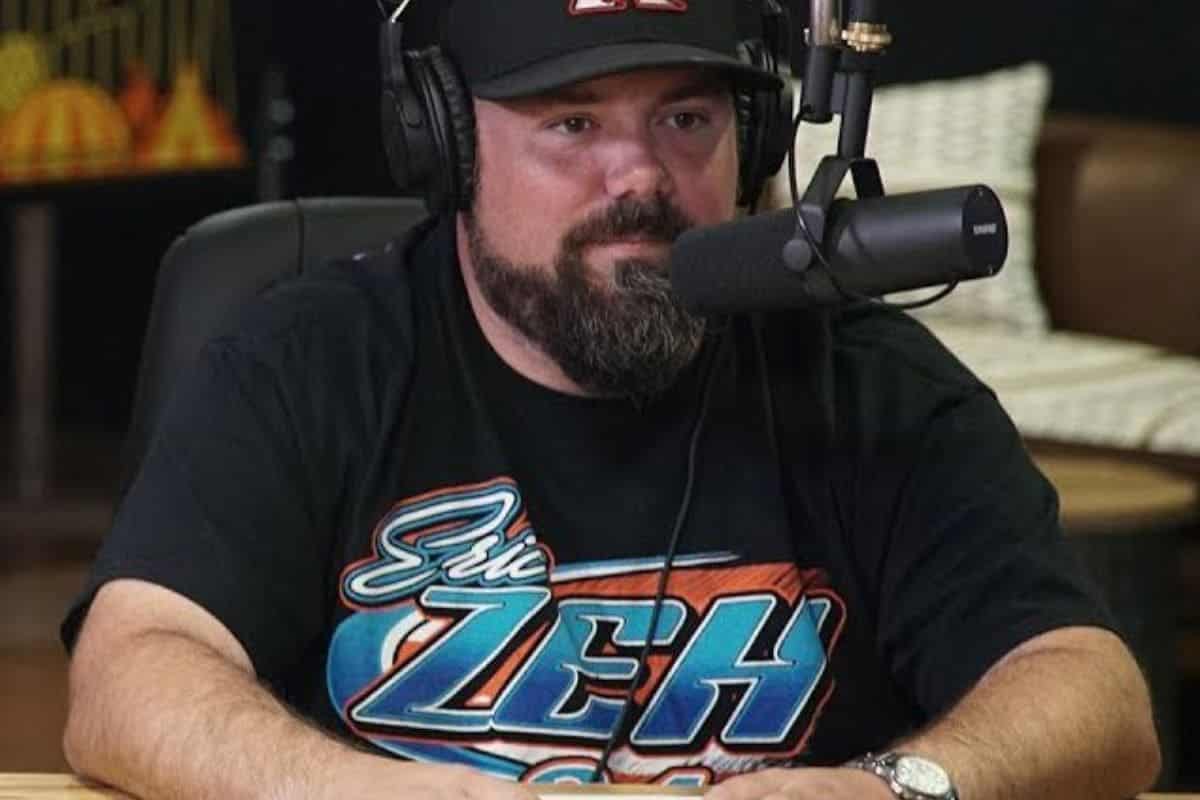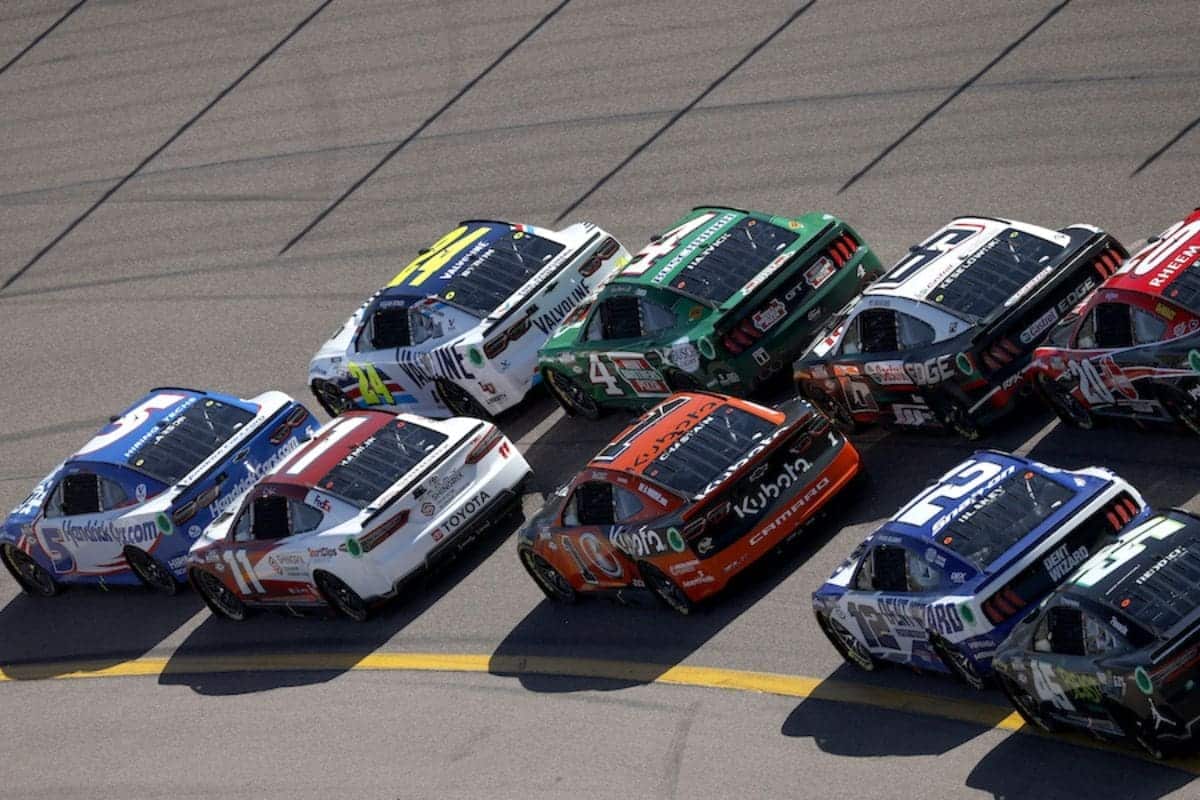Freddie Kraft’s Bold Plan: Freddie Kraft’s vision to rejuvenate the Truck Series by emphasizing short-track racing under a mile in length has sparked considerable intrigue within the NASCAR community. This strategic pivot aims to revive the grassroots spirit by focusing on local circuits and nurturing emerging talent, while wisely maintaining select iconic larger tracks. By advocating for a return to the series’ roots, Kraft is not merely reshaping the competitive landscape but also signaling a potential renaissance in fan engagement and driver development.
Key Highlights
- Freddie Kraft advocates for a shift towards primarily short-track racing in the Truck Series.
- Emphasis on tracks under a mile to reignite competitive short-track spirit.
- Selective exceptions made for iconic larger tracks within the series.
- Increased support for local racing efforts and up-and-coming drivers.
- Aims to strengthen the connection between premier series and grassroots racing.
Freddie Kraft’s Advocacy for Grassroots Racing
Freddie Kraft, renowned for his role as Bubba Wallace’s spotter, fervently champions the reinforcement of grassroots racing within the NASCAR Craftsman Truck Series. He argues that a deep understanding of track intricacies is much more crucial for aspiring drivers than the sheer power of their engines or the sophistication of their car bodies. Kraft’s advocacy is rooted in the belief that the fundamental skills nurtured in grassroots racing are essential for long-term success in NASCAR.
Kraft’s perspective highlights the importance of track familiarity and the strategic expertise it cultivates. He suggests that young drivers who refine their skills on various and demanding grassroots circuits develop a detailed appreciation for racecraft—an ability to interpret tracks, optimize lines, and manage tires—that goes beyond mechanical advantages. This approach, according to Kraft, nurtures a generation of drivers who are not only skilled at maneuvering high-powered trucks but are also strategically sharp, resilient, and adaptable.
By advocating for grassroots racing initiatives within the Truck Series, Kraft envisions a program where upcoming talent can smoothly shift from local tracks to professional circuits. His proposal includes increased support for regional racing events, more accessible entry points for young drivers, and partnerships with grassroots organizations to create a strong pipeline of skilled racers. This holistic approach aims to preserve the essence of NASCAR while ensuring the sport remains competitive and rooted in its origins.
NASCAR Drivers Supporting Grassroots Racing
In a collaborative effort to strengthen grassroots racing, esteemed NASCAR drivers such as Dale Earnhardt Jr., Kyle Larson, and Josh Berry have taken proactive steps by not only participating in regional racing events but also by starting their own series and nurturing young talent. This commitment not only highlights their dedication to the sport but also serves as a crucial lifeline for the sustainability and expansion of grassroots racing.
Dale Earnhardt Jr., a respected figure in NASCAR, has frequently competed in the Cars Tour, a regional racing series that focuses on short-track racing. His involvement has drawn significant attention and resources, raising the profile of the series and inspiring other high-profile drivers to get involved at this level.
Similarly, Kyle Larson has not only raced in different grassroots events but has also launched High Limit Racing, a series dedicated to sprint car racing. This endeavor aims to provide a competitive platform for emerging talent and boost the longevity of dirt track racing.
Josh Berry, recognized for his skills in both NASCAR and grassroots circuits, plays a crucial role in mentoring young drivers. His participation offers these aspiring racers with valuable insights and exposure, assisting in shaping the next generation of NASCAR stars.
- Participation in Regional Series: Competing in local races to increase visibility and popularity.
- Initiation of New Series: Establishing racing series to create more competitive opportunities.
- Mentorship Programs: Guiding young talent through personal mentorship and structured programs.
- Resource Allocation: Investing time and financial resources to support grassroots racing infrastructure.
Freddie Kraft’s Vision for the Truck Series
During a recent dialogue with Derek Pernesiglio, veteran spotter and series insider Freddie Kraft articulated a groundbreaking vision for the NASCAR Craftsman Truck Series, advocating for a strategic shift towards mainly short-track racing. Kraft proposes an inventive agenda where the series would predominantly feature races on tracks under a mile in length.
“I feel like we have to take these series that these kids are wanting to go run and bring them back to the short tracks. I think the truck series should never run more than a mile except for, go to maybe Daytona one time, go to Charlotte one time, and then go to the go to Dover and then put Stafford, Pensacola”- Kraft
Kraft’s vision is not merely about reducing track lengths but about reigniting the raw, competitive spirit inherent in short-track racing. He argues that the intimacy and intensity of these venues foster closer competition and more fan engagement, elements critical for sustaining and expanding the Truck Series’ audience. By limiting races to these compact circuits, Kraft envisions a revival of the visceral, door-to-door racing that originally captivated fans and drivers similarly.
“If you’re gonna go to Stafford, Keith Racco can figure out either rent a truck ride, or maybe even put a truck right together because you don’t have to have the best bodies and the best engines to run Stafford and be competitive if you have a good understanding of the race track.” – Kraft
"I think the @NASCAR_Trucks should never run more than a mile except for, ya know maybe go to @DAYTONA 1 time, to go @CLTMotorSpdwy 1 time. Then @StaffordSpeedwy …Pensacola @5FlagsSpeedway@FreddieKraft from @DirtyMoMedia talks about grassroots racing. Coming to @RealDPShow pic.twitter.com/sT162gtuIl
— The Derek Pernesiglio Show (@RealDPShow) July 1, 2024
However, Kraft’s plan is not entirely rigid. He acknowledges the iconic status of certain larger tracks, proposing selective exceptions for venues like Daytona and Charlotte. This nuanced approach balances tradition with originality, ensuring that the series retains its connection to some of the sport’s most storied locations while primarily focusing on what he considers the heart of stock car racing.
The strategic shift Kraft champions is as much about philosophy as it is about logistics. By emphasizing short-track racing, he aims to support local racing efforts, providing a more accessible pathway for up-and-coming drivers. This holistic vision positions the Truck Series as an essential incubator for future NASCAR talent.
Diverse Racing Backgrounds and Their Impact
Drivers with diverse racing backgrounds bring a wealth of experience and adaptability, making them formidable contenders in the higher echelons of NASCAR. Freddie Kraft emphasizes the significance of this versatility, noting that drivers who have honed their skills in a range of racing environments such as Modified cars, Late Models, Sprint cars, and Dirt racing possess a unique advantage. This multifaceted experience allows them to shift smoothly into more competitive series like Xfinity and NASCAR’s top-tier events, epitomized by talents such as Keith Rocco.
- Enhanced Car Control: Drivers accustomed to the unpredictable nature of dirt tracks or the high-speed precision of Modified cars develop superior car control skills. This adaptability is vital for handling NASCAR’s diverse track conditions.
- Strategic Insight: Competing in different racing formats cultivates strategic thinking. Drivers learn to make split-second decisions that can make or break their race, a skill that translates well to NASCAR’s intense environment.
- Mechanical Understanding: Exposure to different vehicle types often fosters a deeper mechanical understanding. Drivers who know the intricacies of their cars can communicate more effectively with their crews, leading to better performance adjustments during races.
- Competitive Edge: Varied backgrounds can serve as a psychological advantage. Drivers who have excelled in challenging, diverse racing conditions are often more resilient and confident, traits that are invaluable in the high-pressure world of NASCAR.
Impact of NASCAR’s Schedule Changes
NASCAR’s revamped weekend schedules, characterized by reduced practice sessions and condensed race formats, have sparked a significant shift in the sport’s dynamics, fostering greater opportunities for grassroots racing development. This transformation has gained praise from drivers like Kyle Larson, who emphasize the benefits of this streamlined approach. By minimizing on-track practice time, NASCAR not only reduces operational costs but also grants drivers increased flexibility to participate in different racing formats.
“I think grassroots has grown a lot, you know, here the last few years. And I would say live streaming has been a big part of that, but yeah, I mean, I think even probably a factor in that would be the cup schedule being much simpler on a race weekend. It allows your drivers to have more time to go do stuff, want to go do stuff outside of NASCAR, because our weekends are so, you know, with only 20-minute practice.” – Larson
Larson’s endorsement highlights an important advantage: the ability for drivers to immerse themselves in grassroots events during off-peak times. This flexibility allows seasoned professionals to return to their roots, participating in local short track races, and mentoring up-and-coming talent. Such engagements are essential for the sustenance and growth of grassroots racing, providing a direct link between the premier series and the foundational levels of the sport.
“I think its helped grow the sport as a whole.” 💬
Kyle Larson shares his thoughts on the recent growth of grassroots racing and how the current Cup schedule allows drivers to run more races outside of #NASCAR. @TeamHendrick X @Hendrick5Team pic.twitter.com/z66UzqKMt0
— Racing America (@RacingAmerica) June 19, 2024
Moreover, the condensed race weekends have redefined fan interaction. Shorter practice sessions and an action-packed schedule mean fans receive a concentrated dose of racing excitement. This change has proven to be a boon for fan engagement, as enthusiasts can witness more racing action in a single visit, making the experience more fulfilling and memorable. The proximity of top-tier drivers to grassroots events also improves accessibility, allowing fans to interact with their heroes in more intimate settings.
News in Brief: Freddie Kraft’s Bold Plan
Freddie Kraft’s strategic vision to revitalize the Truck Series by focusing on short-track racing under a mile in length and selectively integrating iconic larger tracks heralds a game-changing era for grassroots motorsports.
By supporting local racing efforts and nurturing emerging talent, this approach promises to reinvigorate the competitive spirit inherent in grassroots circuits.
The plan honors traditional racing values and secures a dynamic, engaging, and sustainable future for the Truck Series, aligning with broader NASCAR schedule changes.
ALSO READ: Freddie Kraft Slams Hamlin-Larson Rivalry as ‘100% Idiots’




